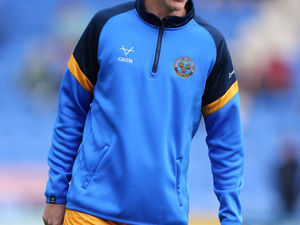Matt Maher: Steve Bruce is proving the critics wrong
Perhaps Steve Bruce does know what he’s doing after all.
A hugely controversial and unpopular appointment with Newcastle supporters when he was chosen to replace Rafa Benitez in the summer, the 58-year-old is currently defying the critics with the Magpies perched in the top half of the Premier League, heading into Christmas just four points adrift of the top four.
No-one expects the gap between Newcastle and those positions to be so slim come the end of the season.
But considering many of the grim predictions made when Bruce first arrived at St James’ Park, with many hurrying to write the Magpies off as relegation fodder, it feels more than fair to bill them as a surprise package thus far.
For context, they are eight points better off than they were at the same stage last season under Benitez, a manager who was lauded in the North-East for merely keeping them in the league and who 12 months ago claimed survival alone represented ‘a miracle’.
They are also enjoying their best home form for more than seven years, with Saturday’s 1-0 win over Crystal Palace extending an unbeaten run in front of their own supporters to eight matches.
That has ultimately laid the foundation for their relative success, but while Newcastle have been beaten in six of their nine away league fixtures to this point, there have also been notable wins over Sheffield United, West Ham and Tottenham.
In some respects it is easy to see why Bruce was being written off.
Though experienced in the Premier League, his biggest managerial successes in recent years have come in the Championship, while he had not been in charge of a club in the top flight for three years.
There is also the fact he was appointed just eight months after being sacked by Villa, when they were rooted in the bottom half of the second tier. Yet while it is true Bruce did little to help his cause with supporters in his final weeks at Villa, the chaotic manner of his departure (less than 24 hours after a fan threw a cabbage at him) rather distracted from much of the good work he had done, whether it was clearing out the club’s toxic dressing room or rejuvenating the career of Jack Grealish.

Bruce had lost his way at Villa and it was the right time for him to go, no question.
The decision was vindicated when Dean Smith, his replacement, led the club to promotion just seven months later.
Yet Bruce’s reign was nowhere near the failure some might have you believe. His achievements in the Premier League are also worthy of further revision.
Bruce kept Birmingham in the division for three years, before guiding Wigan to the highest-ever finish in their history.
Neither does a top-half finish with Sunderland look particularly shabby, considering everything which has happened on Wearside since his departure in 2011.
A popular criticism of Bruce is that his teams adopt an unattractive style of play and there can be few arguments the Magpies are currently prioritising pragmatism over flair.
They are currently averaging only one goal a game, with only two teams in the league having netted fewer. Most of their goals have been scored by defenders, which tell its own story. Yet while it might not be particularly pretty, it is proving very effective.
The bottom line is that while it might seem fashionable to brand the likes of Bruce a ‘dinosaur’, you do not sustain a 20-year career in management in the top two divisions without learning a thing or two about how to set up a team and – most importantly – get results. In a fascinating interview published last week in the New York Times, former Juventus coach Massimo Allegri took aim at the modern belief that every manager must have a philosophy.
For Allegri, who won four consecutive league and cup doubles in Turin, the biggest key to success remains an ability to get the best out of your players.
Though more is written these days about tactics than ever before, sport is still played by human beings and an ability to understand what makes them tick is the primary quality required by any manager. Bruce has always been particularly good at man-management – the work he did with Grealish, a player whose career was in danger of going stale, is testament to that.
In hindsight, you might also surmise the situation at Newcastle, with a frustrated fanbase railing at the club’s owner Mike Ashley, was ideally suited to a man with a thick skin and unwavering belief in his own ability, who tends to perform best when his back is against the wall.
Neither will the financial restrictions which eventually prompted Benitez to walk away faze Bruce.
He has tended to do less well when there is money to spend.
Things quickly fell apart at Sunderland once he was given the chance to splash the cash.
Whether the early promise at Newcastle can be sustained remains to be seen.
The club’s potential will always remain limited so long as Ashley remains at the helm. His relationship with supporters is broken beyond repair and the club will never properly move on until he does.
You never get the sense things are going to remain stable for long.
For Bruce, there is at least the pleasure of knowing for the moment he is prompting the critics to think again.




